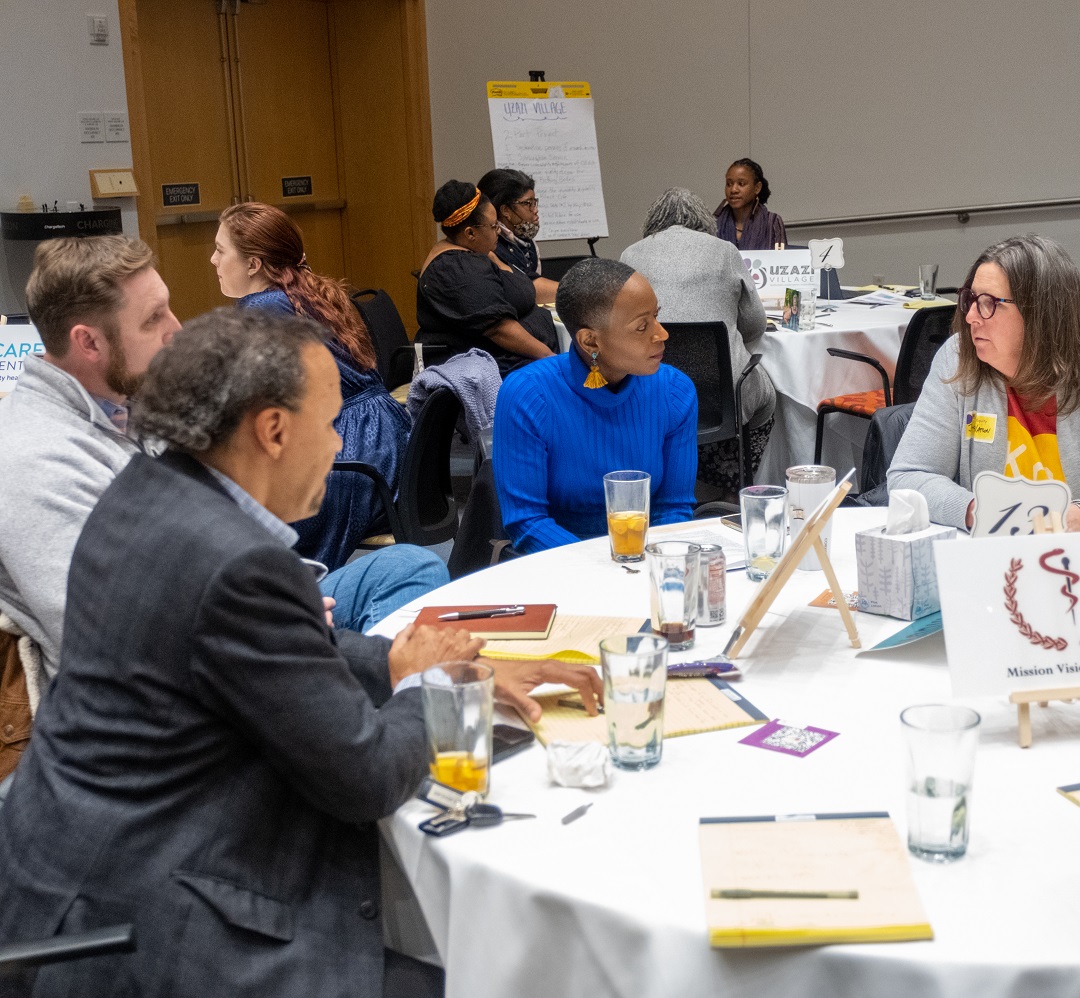
KC LAN Action Teams
The makings of this health equity blueprint started several years ago as a seed that grew deep roots in the heart of Health Forward’s CEO Qiana Thomason.
“The LAN was a seed planted in my heart probably about five to seven years ago before I arrived at Health Forward,” she said. “And that seed was planted in my heart, in part, because of my own experience with health injustice as a woman of color who could have been a maternal mortality health statistic.”
Outcomes resulting from the learning phase gave way to an action phase launched in the summer of 2022. It included a competitive application process that required applicants to submit concepts that focused on methodologies that identified, addressed, and developed strategies to tackle health injustices using an equity-centered, anti-racist approach. Fifteen teams, that include 17 organizations, make up the action community.
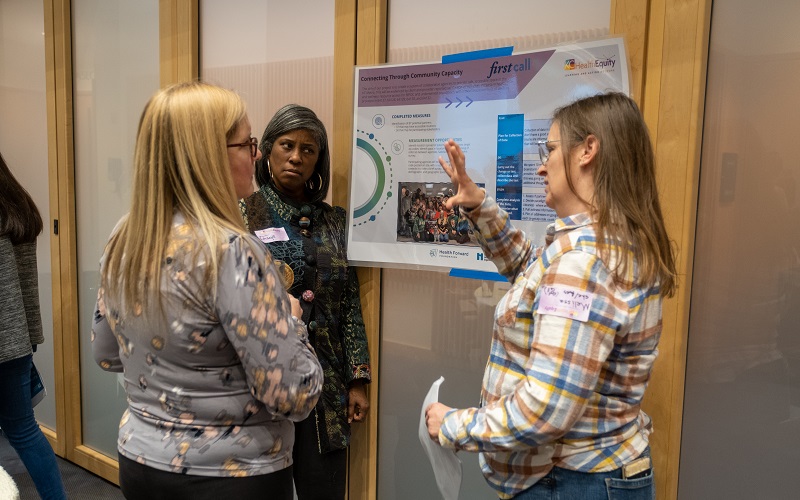
First Call
First Call KC will make physical services more accessible in communities without access to reliable, fast internet. It will partner with agencies that can provide space to bring in-person healthcare and wellness services to clients, non-profit organizational staff, and community members. By leveraging existing infrastructure, First Call KC will decrease health inequity by expanding accessibility.
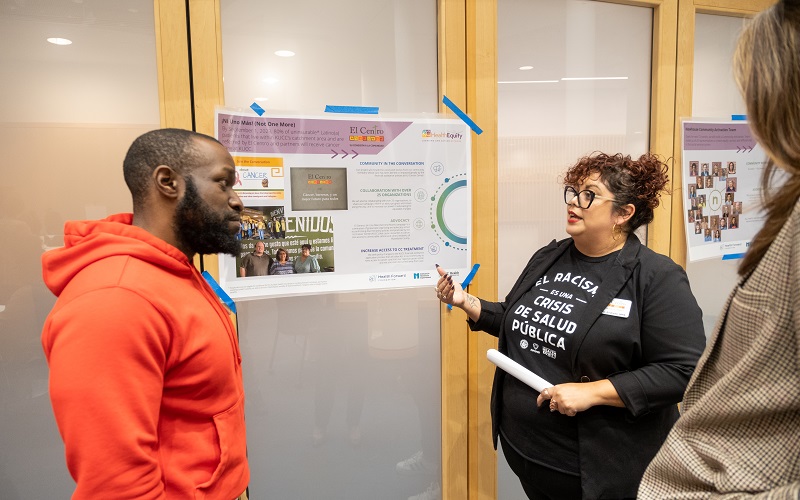
El Centro, Inc.
People living in Wyandotte County and facing a cancer diagnosis experience extreme barriers to accessing care, despite the availability of financial assistance. The ¡Ni Uno Más! (Not One More) project aims to see a policy change to financial assistance practices, at area cancer centers, that do not withhold life-saving cancer care to patients based on immigration status.
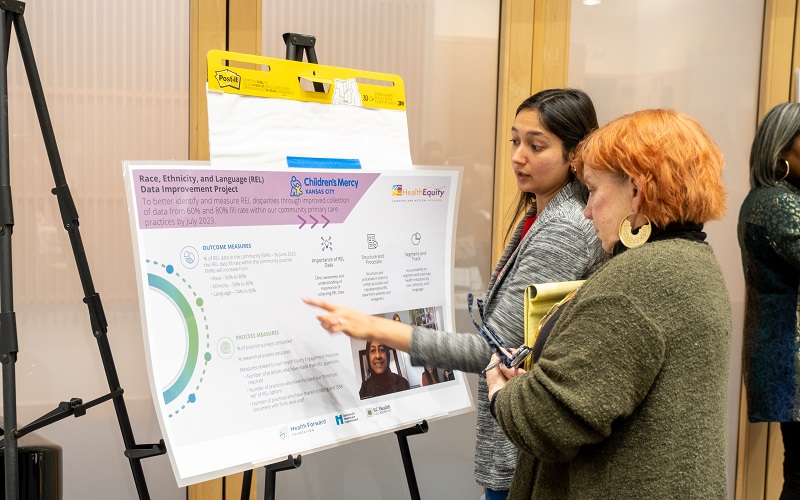
Children’s Mercy
Children’s Mercy Kansas City seeks to improve the health potential of its patients by collecting more accurate and representative race, ethnicity, and language (REL) data within its value-based care network. The improvement of REL data will allow Children’s Mercy to identify health disparities within its population and initiate work to address care gaps.
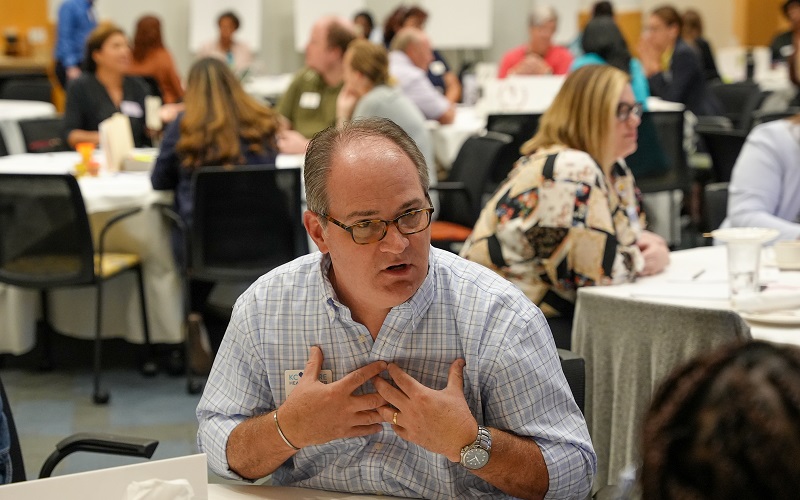
KC Care Health Center
KC CARE seeks to improve the overall patient experience by developing a Patient Journey Map designed around the lived experiences of specific patients facing historical health inequities. The Patient Journey Map is a management tool which immerses decision makers into the lived experience of patients and develops responsive, measurable action plans.
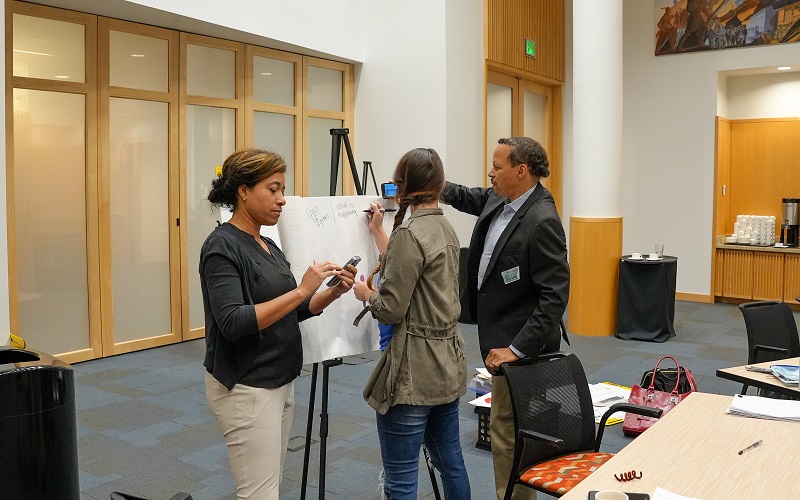
Mission Vision Project
The Physician Pipeline Project aims to address health disparities by supporting existing resources seeking to increase the number of highly qualified students of color in Kansas City metro area medical schools. This program, geared towards high school students from Lincoln Prep and Sumner Academy, aims to increase the number of medical students of color in the KC area.
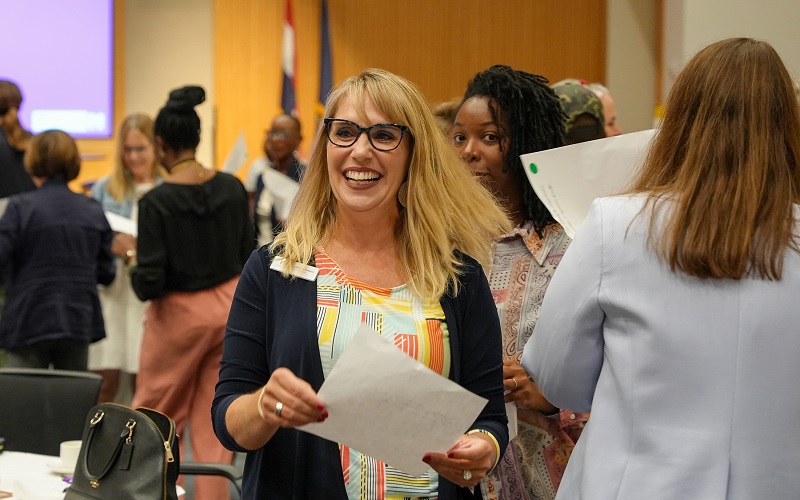
Newhouse KC
Newhouse is developing a campus model to support survivors of domestic violence who need wide-ranging services at multiple levels. Our goal is to partner across social services industries and governmental entities, and with community leaders, philanthropists, and law enforcement agencies. No standardized practice exists to collect or share client data between domestic violence agencies.
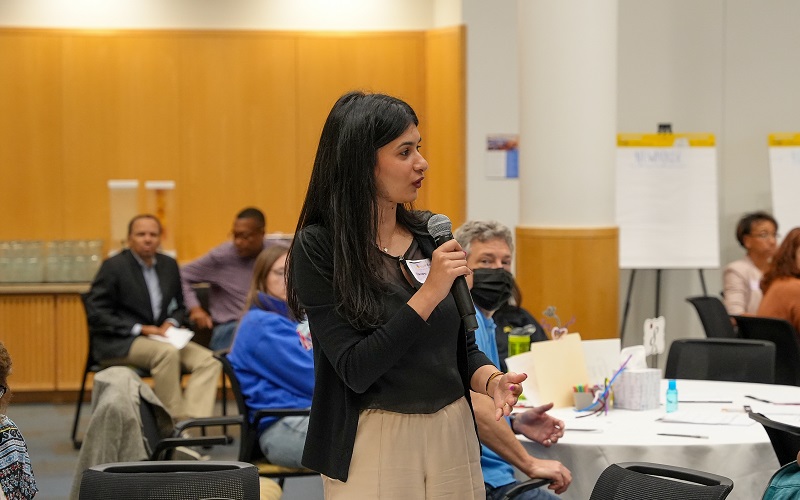
Swope Health
Swope Health does not have sufficient data indicating whether its referrals to Harvester’s Food Bank improved outcomes for its patrons. Swope Health will analyze the data to identify gaps in care to ultimately improve chronic disease outcomes. Improved outcomes in food insecurity would identify a pathway for Swope to address other social determinants in the future.
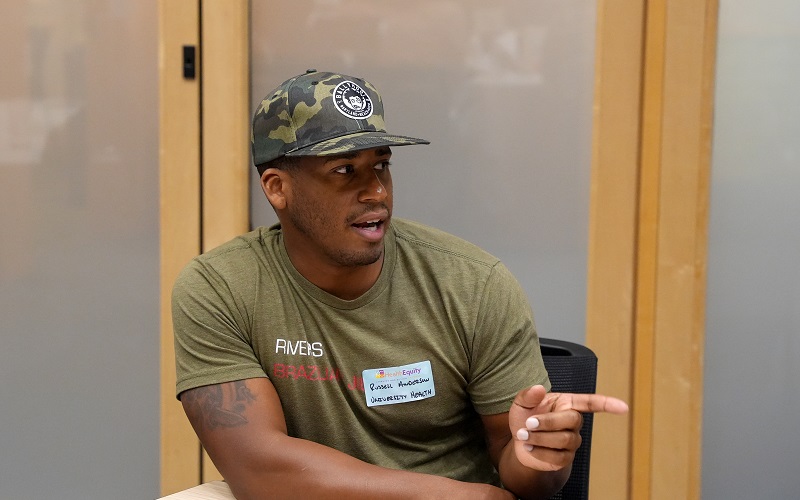
University Health
The current method of measurement of one’s estimated glomerular filtration rate (eGFR) is based on the patient’s race. Many laboratories opt to use mathematical equations to estimate eGFR, causing disparate results based on race. This project seeks equitable measurement of kidney disease acuity, treatment options, and transplant referrals for Black patients.
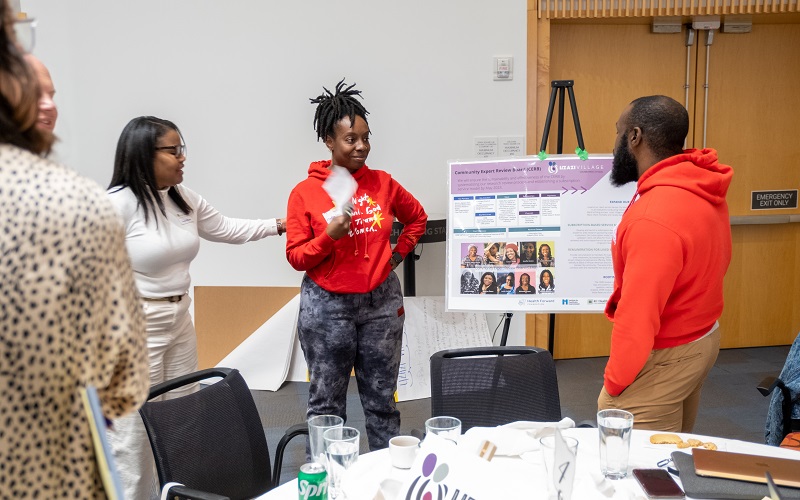
Uzazi Village
The Community Expert Review Board (CERB) works to make policymakers and researchers, focused on maternal and infant health in Black communities, aware of the negative impacts of conducting research without accountability. The CERB offers community engagement, partnership, and leadership to help them see the Black community through an equity and antiracism lens.
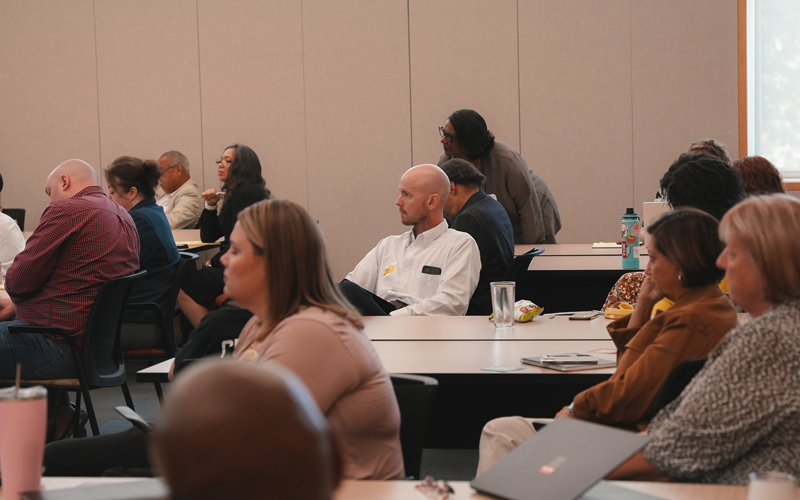
ReDiscover
ReDiscover is working to create a sustainable Behavioral Health Equity Plan. The project will reduce barriers for Black, Latino, and Hispanic people who access behavioral health care to mitigate the reasons they end their participation in these services too soon. ReDiscover will partner with community members to conduct listening sessions that will inform the content of the Plan.
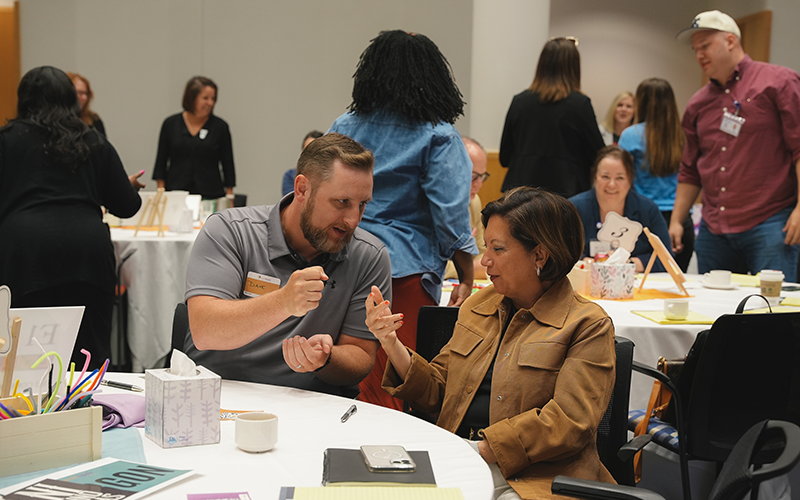
Centrus Health of KC
Employees of Nebraska Furniture Mart are experiencing health outcomes impacted by social conditions. Centrus Health Kansas City’s initial focus is to understand the population by engaging with patients to improve hypertension and diabetes, using a health equity lens. This will serve as a model for patient-centered approaches to care delivery and employee benefits.
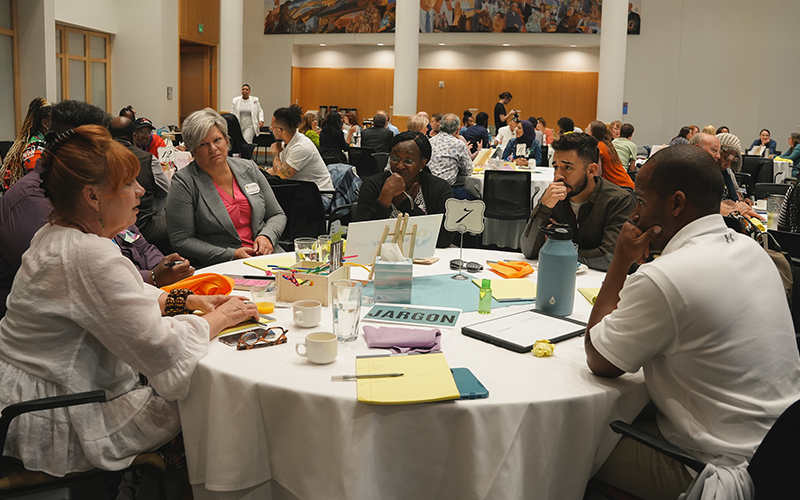
Saint Luke’s
Saint Luke’s looks to improve blood sugar control in patients with diabetes by partnering with Black patients in a cohort that develops strategies to help improve health outcomes. Participants include adults diagnosed with diabetes who are enrolled in Saint Luke’s Longitudinal Care Management program, and who are experiencing a high level of social vulnerability.
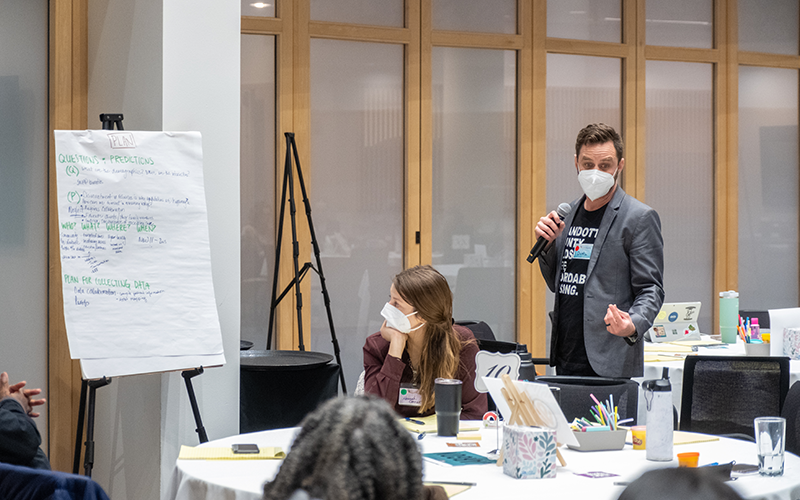
Unified Government
The Unified Government Public Health Department is taking a clear and critical look at the internal policies and practices to understand where structural racism is upheld in these policies and make recommendations while urging local government leaders to acknowledge structural racism and its impact on the health of our residents as a public health crisis.
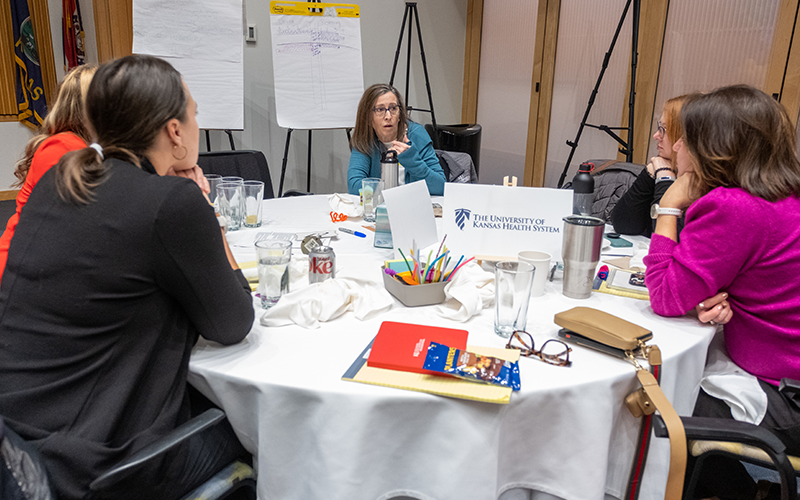
KU Health System
Using targeted data analyses, and patient-centered and evidence-based interventions, the University of Kansas Health System will focus on the primary care and obstetric population in Wyandotte County. Plans include identifying health equity gaps, engaging patient representatives in improvement planning, and developing a plan to establish a CHW program.
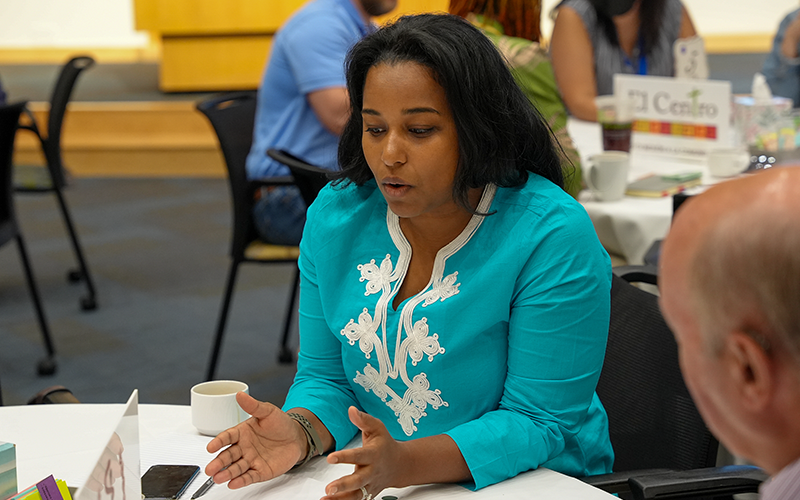
The REL Team
Blue KC, BioNexus, Abada Health, Health Forward, and Kansas City Health Collaborative are working to improve health care quality and patient outcomes through data collection. The collection and availability of disaggregated information about race, ethnicity, and language (REL data) is a vital component of the data infrastructure necessary to infuse health equity.
“Health equity isn’t part of what we do. Health equity IS the work.”
